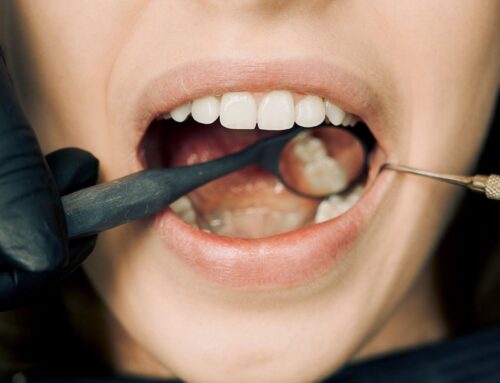Dental crowns, also called tooth caps, provide your teeth with long-lasting coverage. Crowns protect and restore teeth that often cannot be repaired on their own. The caps are placed on chipped, broken, heavily-filled or decayed teeth to restore their appearance and function. Other reasons for the procedure include holding dental bridges in place, covering dental implants following root canal treatments, or cosmetic purposes like hiding discoloured teeth. If your teeth are weak or fragile, your dentist might suggest a dental crown procedure.
What Are Dental Crowns Made From?
Dental crowns are made from a range of materials, the most common of which are porcelain, popular because of its natural-looking colour and shine. This material is also very durable and easy to shape. Other materials include composite resin, ceramics such as zirconia, and metals like stainless steel. Some people opt for gold crowns, which are primarily used for back teeth. There are also cases where more than one material is fused together, as when porcelain is fused to metal crowns. Talk with your dentist about what material is appropriate for the crown’s location and what works best for your budget.
What Is the Process for Getting Dental Crowns?
Dental crown procedures and timelines vary depending on your dentist’s resources. Some procedures take just one day (usually between two to four hours), while others require multiple appointments – if the crown is fabricated at a different location than your regular dental clinic. There are also instances where you may not need an entire crown, so your dentist may suggest getting a ¾ crown or onlay to cover just part of a tooth.
Generally, your natural tooth is first sized and prepared. Digital pictures or molds are taken of the tooth and the surrounding area of your mouth. After this, the tooth is prepared and shaved down. Your tooth will be reduced to a smaller size so that the dental crown or cap fits over it.
If the procedure is completed over a few days or weeks, you get a temporary crown to protect your tooth while the lab designs the final crown from your selected material. Once it is ready, the crown is fitted, etched, rinsed and primed before finally being cemented on top of your tooth.
Your dentist then uses a blue light to cure (harden) it and rinses the area to remove any remaining pieces of bonding material. They also use floss to ensure the crown is fitted properly and, finally, may take a post-cementation X-ray to verify complete seating and check if any residual cement remains.
What Are the Advantages of Dental Crowns?
There are many benefits to dental crowns. They are usually covered by dental insurance, which reduces the cost significantly. Unlike veneers, they can be placed on just one or two of your teeth. Furthermore, they protect weak teeth and fix cracks and cavities in teeth while enhancing their appearance.
Dental crowns typically last for 5-15 years – or more, depending on the material used and how well you take care of them. Daily flossing and brushing are still essential, and avoid grinding your teeth to prolong the crown’s life even further.
Dental Crowns in Surrey
If you’re looking for dental crowns in Surrey, contact Newton Village Dental Clinic to speak with an experienced Surrey dentist. The friendly, reliable team at our dental clinic can help you decide if dental crowns are right for you. Call (604) 599-4777 to schedule a consultation or contact us online today!





